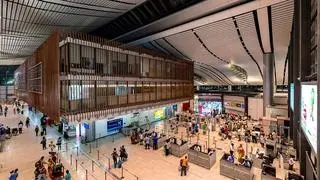The Railways has opened up private investment in general-purpose wagons and will allow investors to put in funds in rail cars that can move multiple commodities, including coal, without the need for any special approval.
This had been a demand from several freight customers or wagon users of trains, and firms in the leasing space. The move will help customers deal with wagon shortage, while ensuring that multiple commodities can be carried, insulating the wagon investors from the ups and downs seen in the business of a specific commodity.
Earlier, the Railways used to allow private investment in special wagons — for instance oil firms could invest in tankers, steel firms could invest in wagons specially for steel transportation, firms in automobile logistics space could invest in specially designed automobile wagons. Also, container train operators were allowed to invest in wagons that could move containers, with Railways specifying the commodities that moved in containers.
Investor terms
While various commodities can be moved in these wagons without a prior nod — as is the case in special wagon schemes — the routes on which these wagons can run will be limited. The investors, who have to invest in at least one rake, will have to get prior nod for these routes. They also have to tie up with the points of origin and destination.
Those who can invest include producers and consumers that can move cargo by train, public sector units, logistics service providers, port owners and port rail companies, mine owners and wagon-leasing companies. These wagons, that will be RFID tagged, have to be differently coloured than the Railways’ wagons. The users will have to ensure that their wagons have loading customers, as otherwise, they have to park the train in their own premise.
Freight rebate
The investors will get a 10 per cent rebate on a base freight for 15 years for carrying each commodity. But, the rebate each year will not be more than the lease charges that the Railways pays to its financing arm, Indian Railway Finance Corporation, for such wagons. This will be ensured by the Railways' IT arm CRIS, that will devise a software. Life of these wagons will be 15 years, or earlier, if the capital investment is recovered.







Comments
Comments have to be in English, and in full sentences. They cannot be abusive or personal. Please abide by our community guidelines for posting your comments.
We have migrated to a new commenting platform. If you are already a registered user of TheHindu Businessline and logged in, you may continue to engage with our articles. If you do not have an account please register and login to post comments. Users can access their older comments by logging into their accounts on Vuukle.